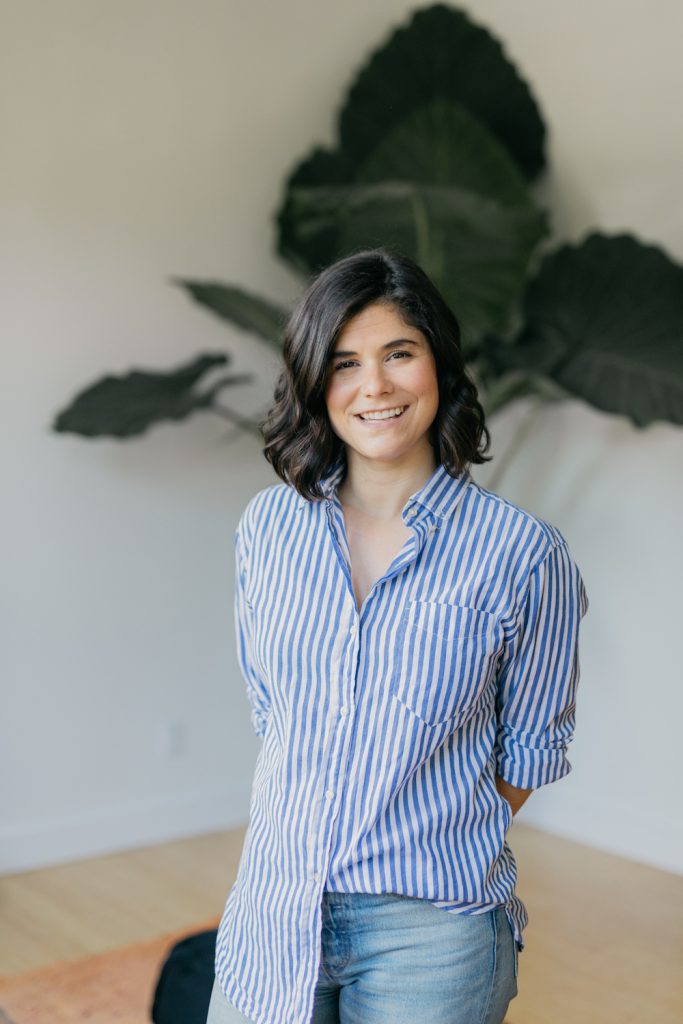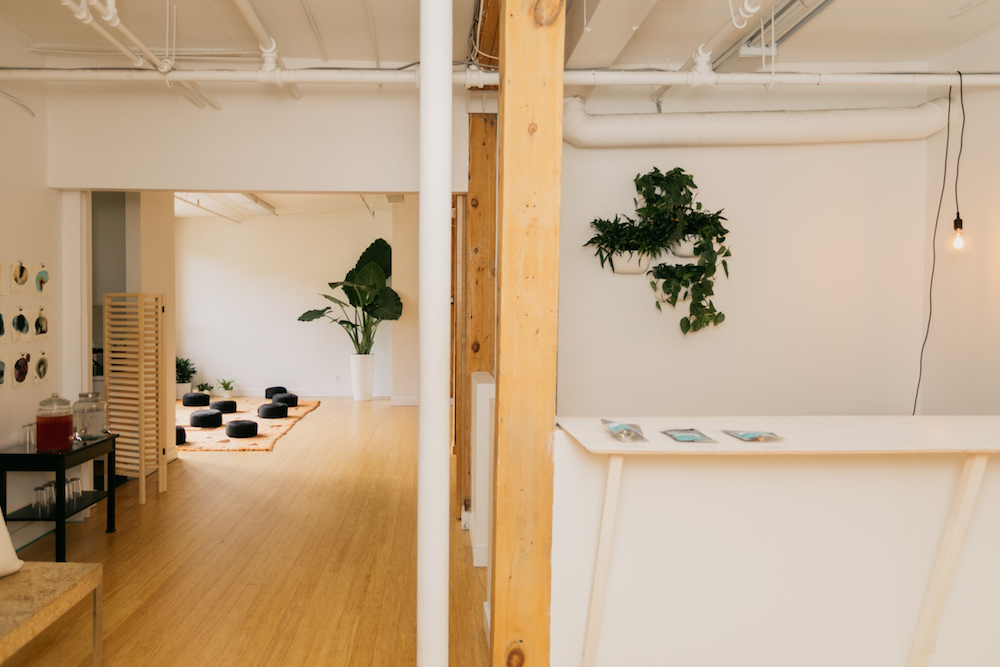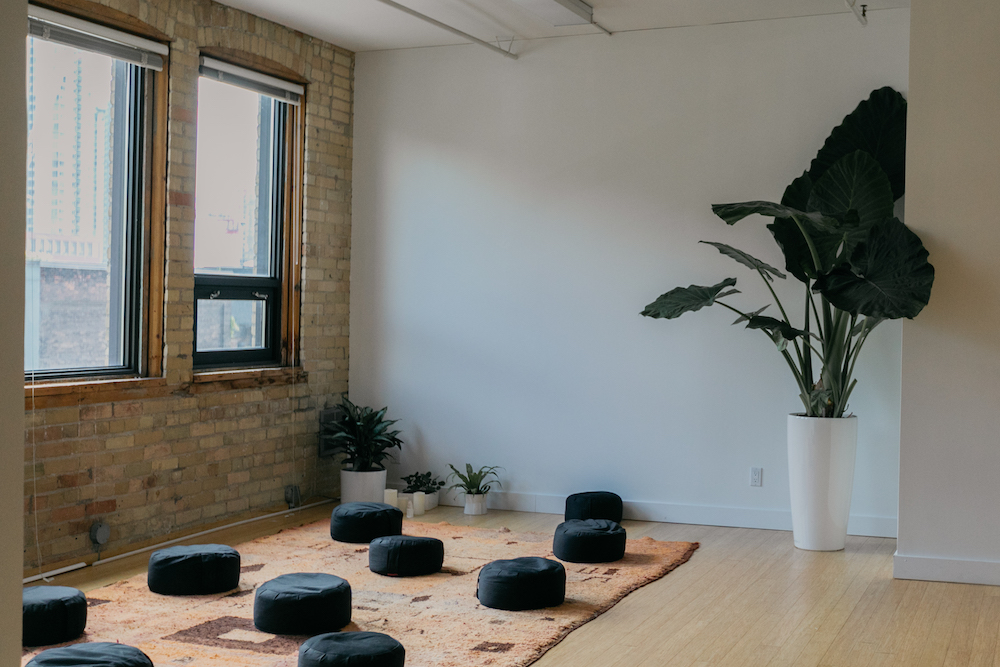A Host of New Meditation Studios Have Opened in Toronto.
Written by Ross Dias
Every week I tell myself a little white lie: Next week will be easier. Only, it isn’t. I’m lucky to have a job I enjoy, but like any facet of modern society, it’s also mind-consuming, and draining. Minor stresses like missing the bus or a bad meeting add to rising stress levels, which just makes things worse.
Studies show that mood fluctuations alter a person’s visual perspective of the world. A negative mood can seriously decrease the intensity of colours our eyes see, making everything gloomy and gray. This is where meditation can help.
“I came to meditation because I was a pretty stressed out person, and just felt like I wasn’t connecting in an authentic way in my life. I was very addicted to my phone, very passionate about work, and finding that balance was hard,” Emily Thring, founder of The Quiet Company, says.


After finding relief in meditation, Thring left a corporate job in communications and politics to start her own studio, and help others. The operation used to run as a pop-up studio out of multiple locations around the city including The Gladstone Hotel, Lululemon Queen Street and Health Hut, before moving to its permanent location earlier this summer.
Meditation is another arm of the recent push towards better awareness surrounding our minds and mental health. Mindfulness is taking over Toronto with a wave of new studios opening up around the city, like Yorkville’s Mindset Brain Gym, as well as Habitas, which is set to open up soon in the core.
“Toronto is a city that is growing and achieving, and we’re all busy. There’s so much to do and see. When you push yourself at 120 percent, when you want to be everywhere and do everything, you need to find a way to rest and recharge that will support you in the journey,” she says.
Mindfulness came as a breath of minty fresh air to my tired mind and eyes. I recently sat for a 15-minute lunch-time session at The Quiet Company where we closed our eyes, focused on our breathing, and let our minds go blank. It didn’t come easy at first, but with guidance from the instructor’s calm voice at the front of the room, I learned to not ruminate and free my mind.


Still, a one-time attempt at meditation is only temporary relief. Thring says the practise, when regularly conducted over a period of time, will help her clients become more present and connected to their worlds, while reducing their stress.
Classes range from 15 to 60 minutes, and the studio is open throughout the day for sessions, unlike yoga or other studios which may host a single meditation a day, usually just before close at night. “This is all we’re doing: morning, lunch and evening,” she adds.
The available times work perfectly for people who work desk jobs in the neighbouring financial district, but Thring says she sees people of all walks come to her studio. “It’s way easier to meditate here than in your house, next to a pile of laundry or waiting to get into your work day,” Thring says. “It’s like going to a group exercise class, you push yourself a little harder.”
Like exercise, every meditation class may not be for everyone, but it’s with experimentation that people will find what works for them and fits best into their daily routine.








